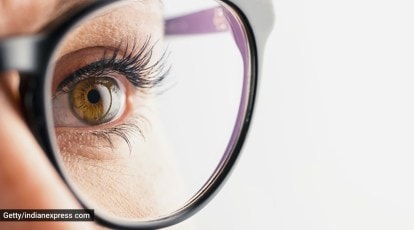Is Refractive Surgery Right for You? Elements to Think About for Better Eyecare
In the world of eye care, the choice to undergo refractive surgical treatment is a substantial one that demands thoughtful factor to consider. From the ins and outs of one's eye wellness to the intricacies of personal expectations and daily practices, each aspect holds importance in the more comprehensive landscape of refractive surgery candidateship.
Eye Health And Wellness Evaluation
When considering refractive surgery, a comprehensive eye wellness examination is crucial to analyze the suitability of the treatment for each individual. neurologist andalusia. This analysis entails a collection of tests and examinations carried out by an eye treatment specialist to figure out the total wellness of the eyes, the presence of any hidden problems, and the stability of the refractive error
Throughout the analysis, numerous variables are considered, such as the patient's case history, present eye prescription, corneal density, student size, and tear film quality. These analyses assist to determine any contraindications to refractive surgical procedure, such as corneal abnormalities, cataracts, or unattended eye infections. Additionally, the examination helps to manage patient expectations regarding the potential outcomes of the surgical treatment based upon their distinct eye qualities.
Eventually, the eye health and wellness analysis is crucial in ensuring the safety and security and performance of refractive surgical procedure, as it offers valuable understandings into the individual's eye health standing and assists identify one of the most ideal treatment choices for achieving ideal visual end results. (andalusia pediatrics)
Way Of Life Analysis
A complete way of living assessment is integral in identifying the viability of refractive surgical procedure for a person's aesthetic improvement demands. Way of life variables such as profession, pastimes, and day-to-day activities play a crucial duty in the decision-making procedure pertaining to refractive surgery.
In addition, way of life behaviors such as sporting activities participation, outside activities, and even skincare regimens can influence the healing process and total success of refractive surgical procedure. For instance, individuals who participate in get in touch with sporting activities may require to take added preventative measures to protect their eyes during the healing period. Additionally, people with considerable sunlight exposure might need added post-operative treatment to protect against issues. By conducting a detailed way of life evaluation, eye care specialists can customize their recommendations and treatment strategies to fulfill the special demands of each person, inevitably causing improved visual results and satisfaction.
Assumption Positioning

Clients require to comprehend that while numerous people attain 20/20 vision or better complying with refractive surgery, some might still call for glasses for specific activities like reading or driving at evening. Managing these assumptions aids prevent dissatisfaction and discontentment post-surgery, leading to a more favorable total experience for the patient.
Danger Evaluation

Aspects that might boost the risk of problems consist of age, particular medical conditions like autoimmune diseases, unstable vision prescription, thin corneas, and impractical patient assumptions. In addition, selecting a seasoned and knowledgeable doctor, adhering to pre and post-operative treatment instructions diligently, and disclosing any type of appropriate medical background can aid alleviate dangers.
To lessen the likelihood of complications, ophthalmologists carry out thorough pre-operative assessments to identify any contraindications to surgical treatment. They additionally talk about the possible threats and advantages with individuals during the examination procedure. By taking part in open communication and shared decision-making, both the patient and the eye doctor can interact to establish if refractive surgical treatment is the appropriate option based on private danger profiles and preferred results.
Assessment Relevance
Taking into consideration the critical role of educated decision-making in analyzing risks and prospective issues in refractive surgical treatment, the examination procedure holds significant relevance in guiding people towards optimum end results. Throughout the examination, the ophthalmologist examines the individual's eye health and wellness, refractive errors, and total suitability for surgical procedure. This first analysis is critical in figuring out one of the most suitable treatment for each individual, taking into account variables such as corneal thickness, student dimension, and existing eye problems.
Moreover, the assessment works as a possibility for clients to review their expectations, worries, and any questions they may have regarding the surgery. Clear communication between the doctor and the person is necessary to make certain practical why not try this out expectations and a complete understanding of the possible risks and advantages involved.
In addition, the assessment allows the surgeon to clarify the various surgical choices available, their respective end results, and the post-operative care needed. This thorough conversation equips individuals to make knowledgeable choices regarding their eye care, resulting in much better satisfaction and results post-surgery.
Conclusion
To conclude, individuals considering refractive surgical treatment should undergo a comprehensive eye wellness examination, assess their way of living habits, straighten their expectations with potential end results, examine the affiliated threats, and prioritize consultations with eye care experts. These factors play a crucial duty in determining the viability of refractive surgical procedure for every person, ensuring optimum outcomes and contentment with the treatment.
Clients thinking about refractive surgical treatment typically have high assumptions pertaining to the results, anticipating excellent vision without the need for glasses or call lenses. While refractive surgery can considerably improve vision and minimize dependence on aesthetic aids, it is important for individuals to recognize that results find more info might vary based on specific elements such as the degree of refractive mistake, corneal density, and total eye health and wellness.
By involving in open communication and shared decision-making, both the eye doctor and the individual can work together to establish if refractive surgical treatment is the right selection based on private risk profiles and desired outcomes.
Thinking about the important function of informed decision-making in evaluating risks and potential difficulties in refractive surgery, the appointment process holds considerable relevance in directing patients towards optimum end results. Throughout the consultation, the eye doctor reviews the person's eye wellness, refractive errors, and overall suitability for surgical treatment.